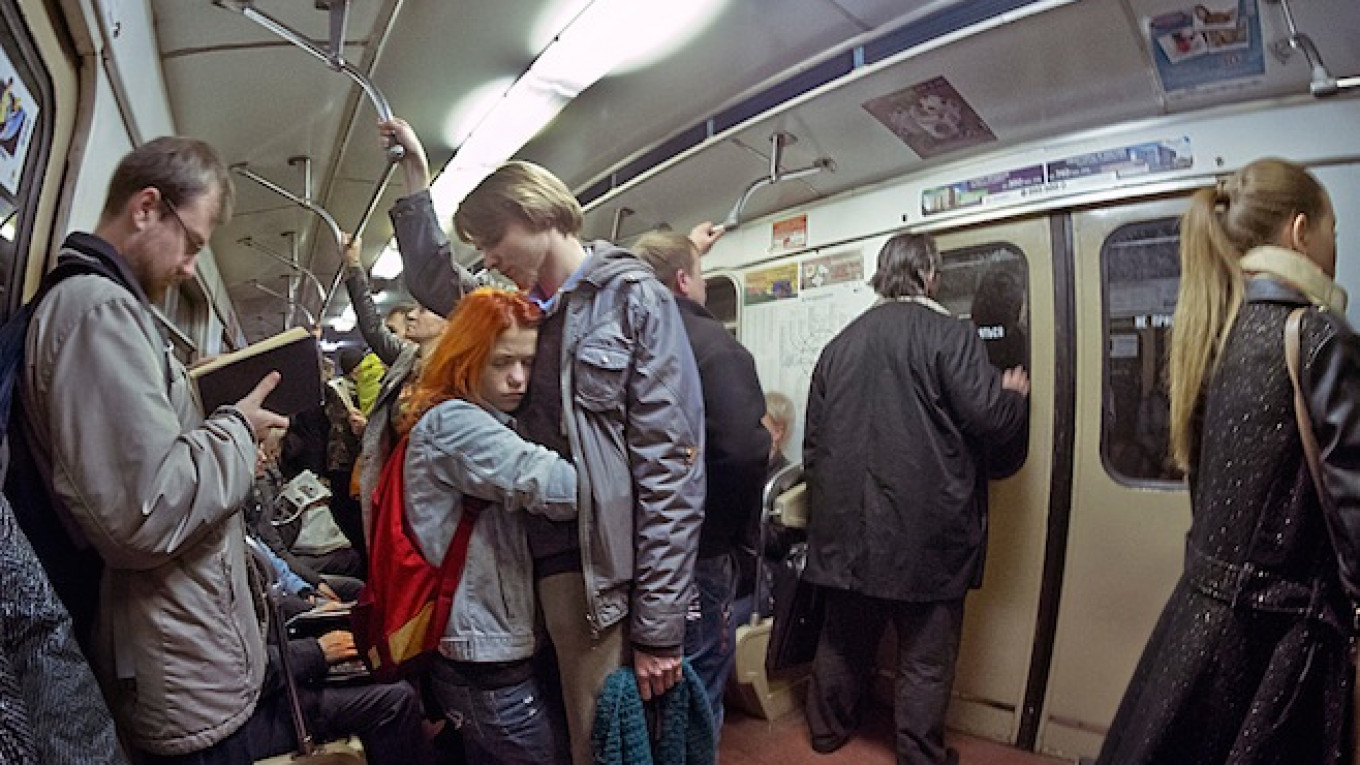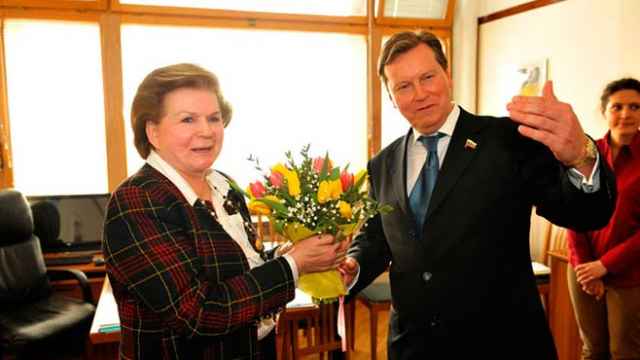Russia's capital Moscow has ranked in ninth place on a list of the world's most dangerous transport systems for women — the only city in Europe to feature inside the top 10.
The survey, carried out by the Thomson Reuters Foundation in collaboration with online pollster YouGov, focused on 16 of the world's most populous capital cities as defined by the United Nations.
An exception was made for New York, which was included in place of Washington DC as the most populous city in the U.S., and was ranked the safest in the poll published Wednesday.
A minimum of 380 women and at least nine women's rights and gender experts were interviewed in each city for the survey, which ranked Moscow's transport system as the ninth-worst for women after the Thai capital of Bangkok.
Those polled were questioned on six topics, including traveling alone at night, risk of being verbally harassed by men, and risk of being groped or subjected to other forms of physical harassment. Respondents were left to decide what constituted "harassment" in their respective societies.
In particular, the poll found that Muscovites had little faith in their fellow passengers when traveling on public or transport — where "transport" was defined by pollsters as a bus, tram, metro, train or standing at a station relating to one of these methods of transport.
Asked if they trusted other passengers to come to their assistance if they were being abused while traveling on public transport, women ranked Moscow the second-least safest city to be in after the South Korean capital of Seoul.
Britain's London and France's Paris, the only other European cities to feature on the list, also polled badly in this regard — ranking in third and fourth-worst places, respectively — with residents saying they doubted other passengers would come to their aid if they were being harassed. At the other end of the spectrum, women in New York were the most confident that other passengers would help them out if they got into any trouble.
Law Enforcement
Women in Moscow also had little confidence in the municipal law enforcement agencies, naming it the worst city when it came to trusting authorities to investigate reports of sexual harassment or violence.
In contrast, women in London, Paris, as well as New York all reported much higher levels of trust in the authorities to investigate reports of sexual harassment or violence.
Overall, the survey found that South America was the most dangerous continent for women traveling on municipal transport systems, with Colombia's Bogota, Mexico City and Peru's Lima consider to be the most dangerous cities on the list. At the other end of the spectrum, China's Beijing, Japan's Tokyo and New York were considered to be the safest cities to commute for women.
The poll, comes just days after a video of a woman being catcalled more than 100 times as she walked through the center of New York went viral, raising concern about the harassment faced by women in larger cities.
The Thomson Reuters and YouGov survey polled 6,555 women and experts in 16 different capitals worldwide. The women surveyed were questioned online between Aug. 27 — Sept. 8. 2014, and this poll provided a margin of error of five percent. The experts were polled between Aug. 27 — Oct. 13, 2014, and no margin of error was given.
The Iraqi capital of Baghdad was excluded from the survey due to increasing political instability in the region, while Egypt's Cairo, Bangladesh's Dhaka, and Iran's Tehran were omitted because the polling companies were unable to find enough participants for the survey. Congo was omitted because the country's Internet penetration is less than 2 percent, the pollsters said on their website.
A Message from The Moscow Times:
Dear readers,
We are facing unprecedented challenges. Russia's Prosecutor General's Office has designated The Moscow Times as an "undesirable" organization, criminalizing our work and putting our staff at risk of prosecution. This follows our earlier unjust labeling as a "foreign agent."
These actions are direct attempts to silence independent journalism in Russia. The authorities claim our work "discredits the decisions of the Russian leadership." We see things differently: we strive to provide accurate, unbiased reporting on Russia.
We, the journalists of The Moscow Times, refuse to be silenced. But to continue our work, we need your help.
Your support, no matter how small, makes a world of difference. If you can, please support us monthly starting from just $2. It's quick to set up, and every contribution makes a significant impact.
By supporting The Moscow Times, you're defending open, independent journalism in the face of repression. Thank you for standing with us.
Remind me later.






